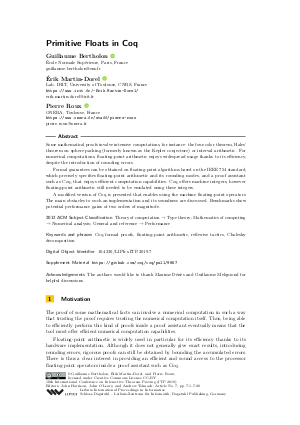LIPIcs.ITP.2019.7.pdf
- Filesize: 0.6 MB
- 20 pages

 Creative Commons Attribution 3.0 Unported license
Creative Commons Attribution 3.0 Unported license















Feedback for Dagstuhl Publishing